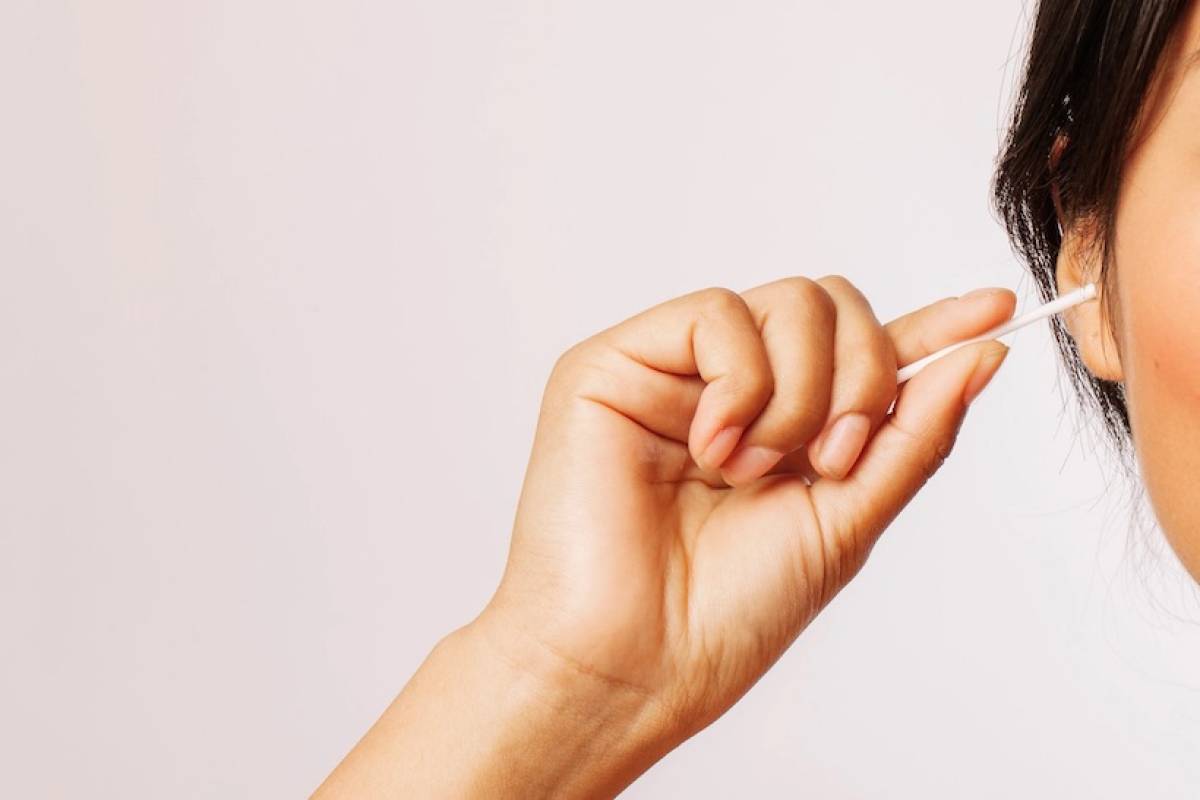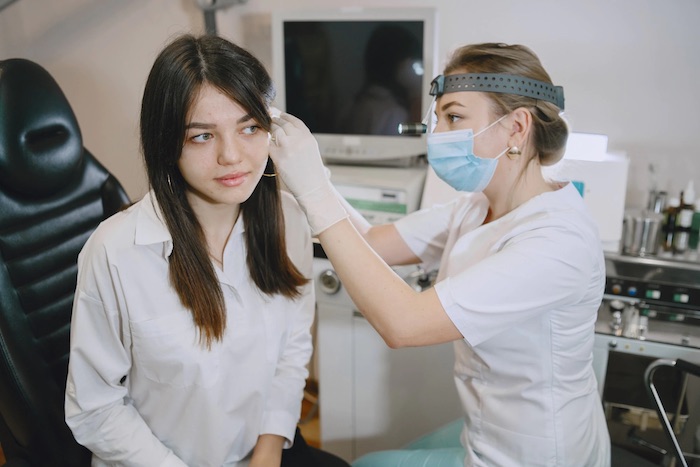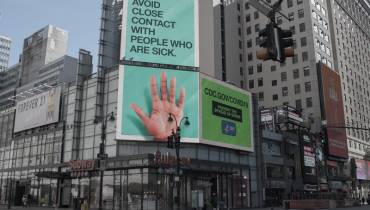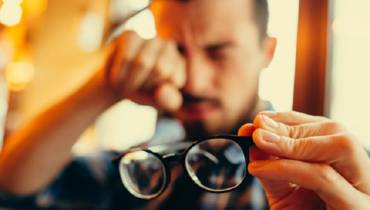How to Care for Your Ears, and Problems that Can Arise If You Don’t

Your ears are delicate and deserve the best care possible. Failure to care for your ears means your hearing could be negatively impacted.
If you work in a loud environment for too long, have progressive age-related hearing loss, or you are subject to frequent infections and wax blockages, you should step up care for your ears.
Some top tips on how to care for your ears properly — so you can keep your hearing in perfect condition for years to come — include:
I. Clear Your Ears
The best way to keep your ears healthy is to clean them regularly and properly. When you clean your ears, you remove any dirt or wax that may have accumulated inside them, as well as any bacteria or fungus.
Dirt, wax, and bacteria can all cause problems if they are not removed from time to time. This can affect your hearing and even cause an infection in the ear canal if left untreated.
The easiest way to clean your ears is by using an over-the-counter earwax removal kit at home. These kits usually contain small sponges or swabs with built-in liquid soaks that dissolve the wax when inserted into the ear canal. You should only use these kits once or twice a month at most because they can damage the delicate skin in your ears if used too often or incorrectly.
If you have trouble getting rid of excess earwax on your own, see a doctor who can flush out excess earwax using irrigation tools like syringes or irrigation.
II. Use Ear Protection
Earplugs are a must-have when it comes to protecting your ears. Not only do they keep water and wind out of the canal, but they also help prevent damage from things like too much noise or altitude changes.
Make sure to use earplugs when swimming, surfing, or showering. Plus, use them while traveling on planes and trains, especially if you're going somewhere high up in elevation. The higher you go in altitude, the thinner the air becomes which causes our ears to feel pressure that can lead to discomfort and pain when flying at high altitudes, especially during takeoff or landing!
You may want to start using earplugs before takeoff so that by time your ears have adjusted fully into flight mode (which takes about 30 minutes), you'll be comfortable with plugs already in place for maximum protection against both external noises as well as internal ones.
- Protecting your ears from loud music is easy—just put on some hearing protection!
Hearing loss is a real problem for many people, especially those who work around loud machinery or listen to music through headphones at high volumes. But protecting your ears from loud music doesn't have to be difficult.
The best way to protect your hearing is by using earplugs when you're going to an event where you'll be in close proximity to loud music. You can also use earplugs that reduce the volume of the sound rather than simply blocking it out altogether. This will help you hear the music more clearly while protecting your ears at the same time.
- Turn down the volume on personal devices like smartphones and tablets
Personal devices play music and videos at high volumes, which is why many people use headphones or earbuds with them. But if you're listening at a high volume or for long periods of time, it could cause damage over time.
Try using lower volumes when possible — especially for younger kids who may be more susceptible to hearing loss due to noise exposure early in life.
III. Have Regular Hearing Tests to Protect Your Ears
One of the most important things you can do to protect your ears is to have regular hearing tests. The best way to make sure that you aren't developing any long-term hearing loss is to perform regular hearing tests and take note of any changes in your hearing over time.
It's easy to assume that everything is fine, but if you don't have a baseline for comparison, it can be hard to know what's normal for you and what isn't.
In addition, if you notice ringing in your ears, age-related hearing loss, or other symptoms of a potential hearing loss, it's important to get help right away.
Illnesses, Medical Conditions, and How They Can Affect Your Ears

Tinnitus, or ringing in the ears, is a common condition that affects about 15 percent of the population, with some people being more susceptible than others.
It is usually caused by exposure to loud sounds over time. Tinnitus can also be caused by certain medications and illnesses, including ear infections and anemia.
The good news is that tinnitus isn't permanent — it can go away on its own if you don't take action to treat it. However, the bad news is that if left untreated, it could get worse or lead to other health problems.
Other common issues that may arise if you don’t take proper care of your ears include clogged feeling in your ears from earwax buildup, blocked eustachian tube, sinus infections, or other cause, as well as itchiness in your ears and ear pressure that causes persistent pain.
The sooner you can identify and address the cause of your ear problems, the better off your ears will be in the long term! Some tips for managing tinnitus at home, for example, include:
- Monitor your hearing health.
If you have tinnitus, it's important to monitor how often and how loud it gets. Record these details in a journal so you can track how they change over time and when they're at their worst. This will help you know what triggers your tinnitus and when it seems to get worse (or better).
Other than that, you should make sure to get your ears checked in a trusted hearing aid clinic for further hearing care tips and solutions.
If you have diabetes, make sure you get regular hearing checks with your doctor since this disease can cause hearing loss and ringing in the ears (tinnitus).
If you have chronic colds or allergies, see an otolaryngologist (ear, nose, and throat doctor) who can give you advice on how to manage these conditions so they won't cause hearing loss or other complications like vertigo (a sensation of spinning).
- Use cotton swabs only when necessary — and then only if they're clean (or disposable).
You should never use cotton swabs in place of Q-tips or other types of swabs because they can push bacteria deeper into your ear canal or cause damage to the eardrum or ossicles.
Conclusion
When it comes to your ears, it's better to be safe than sorry. Make every effort to care for your ears properly and get your ears checked by a health professional at least about every three years.
Remember prolonged exposure to high decibel levels can cause serious and permanent damage to your hearing, so avoid it as much as possible. Stay alert for early warning signs of hearing damage, and try out some of the options that we've laid out above for protecting your ears.
Last but not least, always make sure to check your ears regularly. If you notice a sudden change or decrease in your hearing ability, have your hearing tested by an audiologist as soon as possible to prevent any further damage to your healthy hearing.
Whenever you think you should have your ears checked, get them checked promptly!




















